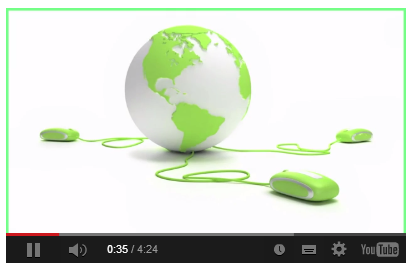As we become increasingly dependent on the internet for all aspects of our lives, how can Europe on the web work best while ensuring that everyone can trust online services?
STOA has examined the latest technological advances with regard to the internet and information technologies in Europe. STOA is the Science and Technology Options Assessment body,which provides independent scientific advice to the European Parliament.
Technology could help foster a European civil society and political sphere, particularly if the European institutions widened their e-participation efforts. This was the conclusion of the 2011 STOA study on ‘E-public, e-participation and e-voting in Europe’. The study did not currently recommend e-voting. However, technology could start addressing the perceived ‘democratic deficit’ in the European Union. The European institutions could broaden e-participation, involving citizens more in the legislative process and creating an ‘e-public’, a European political sphere, perhaps a basis for a shared sense of European citizenship.
The EU has 24 official languages; there are over 80 spoken in Europe as a whole. This diversity is beneficial in many ways, but poses challenges around the free flow of information, knowledge, and goods. At the same time, less widely spoken languages face marginalisation and even digital extinction. In a workshop on 3 December 2013, STOA examined the possibilities offered by ‘Machine Translation’. This recommended that Europe needed high quality machine translation software by 2020, which would require a concerted research effort.
To enable the provision of online services, the internet must be a trustworthy environment. Two STOA studies came to similar conclusions – that a successful European web needs to ensure privacy for users and security of the infrastructure. The delivery of public services across borders was the main subject of ‘Security of eGovernment Systems’ (2013), while ‘Potential and Impacts of Cloud Computing Services and Social Network Websites’ (2014) argued that these developments present a great opportunity for European economic growth.
It is essential that privacy is safeguarded. STOA’s studies have suggested that current Europe regulations need to be updated to take account of the latest technological developments. For example, consumer use of cloud computing is often based on a ‘freemium’ model. Users do not pay if they only use the basic service provided and business models are instead based on analysis and re-use of user data. Current data protection rules do not account for the worldwide and continuous nature of data transfer involved in such services. Citizens should be given more control over the use of their personal data and incentives should be introduced to ensure that ‘privacy-by-design’ – rather than ‘disclosure-by-default’ – becomes the standard system.
Finally, security is essential for a trustworthy internet. STOA’s studies recommended that the EU should make cyber security a commodity. Particularly in the context of revelations about the US government’s internet surveillance, confidentiality is at risk. Availability could also be problematic, with the risk of permanent loss of data, whether through attacks by malicious web users or physical disasters like fires destroying servers. Currently, security solutions are open to hacking or inconvenient for ordinary users. The EU could support the development of secure IT systems that are easy to use.
Studies
- E-public, e-participation and e-voting in Europe, 2011 (options brief / full study)
- Security of e-Government systems, 2013 (options brief / final report)
- Potential and impact of cloud computing services and social network websites, 2014 (options brief / full study / annex)
Study-related workshops
- e-Voting (17/03/2011)
- e-Participation (26/05/2011)
- Security of e-Government systems (19/02/2013)
- The potentials of cloud computing for Europe (02/10/2013)
Ad hoc events
- Barrier-free digital television (28/10/2010)
- Ethical implications of emerging ICT’s: To what extent we can address them? (31/03/2011)
- State-of-the-art of machine translation – Challenges and opportunities (03/12/2013)








Be the first to write a comment.